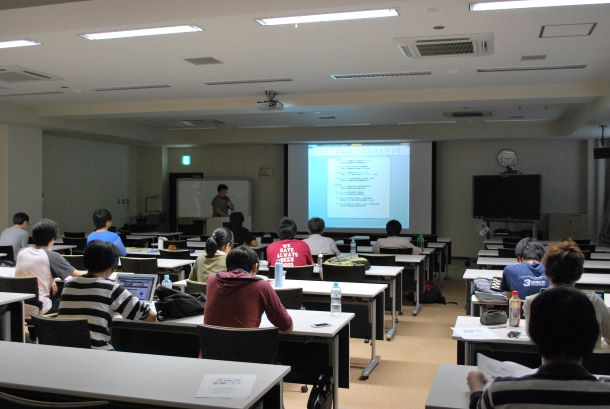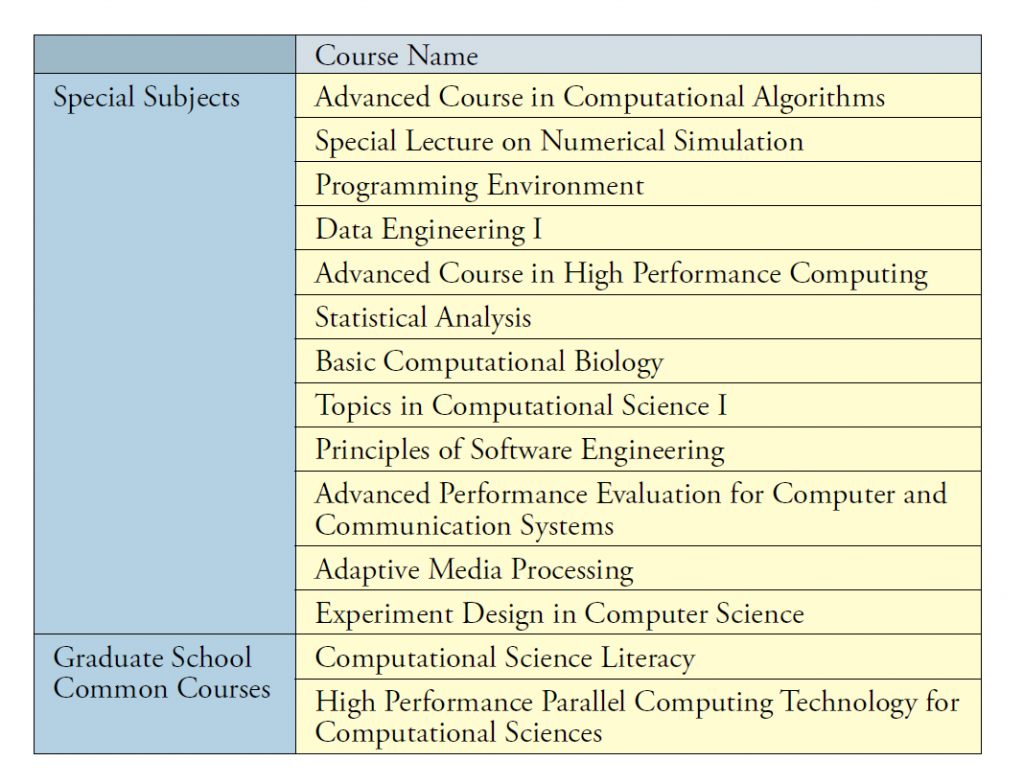Promote Social Contributions and Human Resource Development in Computational Sciences
Head: TAKAHASHI Daisuke
The Promotion Office for Computational Sciences promotes the personnel development program associated with computational sciences in collaboration with the graduate schools, and contributes to society by disseminating information concerning the advanced research conducted at this Center.
■Personnel Development
・Graduate School Dual Degree Program
The graduate school consists of master’s programs and doctoral programs. Doctoral candidates usually study a specialized field through both programs. However, since sophisticated computer skills and experience are necessary to advanced research in scientific fields such as physics, global environment, and biology, a broad level of expertise in both science and computer technology is required for computational science doctoral candidates.
The Promotion Office for Computational Sciences promotes dual degree programs to meet this need. The dual degree program makes it possible to obtain a doctorate in a scientific field along with a master’s degree of computer science simultaneously, by a doctoral program in scientific field and a master’s program in computer science.
・Computational Science English Program
In response to the increasing numbers of international students from overseas, the Computational Science English Program was established as a master’s program in computer science that can be completed in English. As shown in the table, this program provides English lectures in 13 subjects, along with English language research guidance aimed at assisting master degree candidates in successfully obtaining their degrees.
・Campus-wide Courses for Graduate Students
Since computer technology is the foundation of all research activities in graduate schools, classes in computational science literacy and high-performance parallel computing technology for computational science have been established as common subjects for all graduate students. These are open to outside researchers and students from other universities.
■ Social Contribution
・Cooperation with other institutions
Domestically, research cooperation in the field of high performance computational technology is advanced under the T2K Alliance that connects University of Tsukuba with the University of Tokyo and Kyoto University, along with the close research cooperation ties with other research organizations within Tsukuba City. We have also built an international research cooperation framework through the International Lattice Data Grid (ILDG), which is an international data-sharing project in particle physics, with the University of Edinburgh (UK), Lawrence Berkeley National Laboratory (US), and others. We intend to further strengthen and develop the domestic and interna- tional research cooperation, and to utilize those relations as a bridge among researchers and exchange students to pursue collaborative research.
・Mt. Tsukuba Project
This project supports research and educational activities, while contributing to society, by continuously observing, recording, and disseminating weather observations (temperature and humidity) from the 877m summit of Mt. Tsukuba.
・Dissemination of Information
Our office produces three types of brochures. One aimed at high school students and above, another aimed at graduate students and above, and the third written in English to meet the needs of our diverse applicants and students. The office also coordinates visits from high school students within Japan and overseas university students, as well as “open house” events that are open to the public. Through these efforts, we work to deepen exchanges with people around Tsukuba City and in the Kanto region. In addition, the faculty members actively offer and promote off-campus classes and lectures.
(Update: May. 7, 2021)


